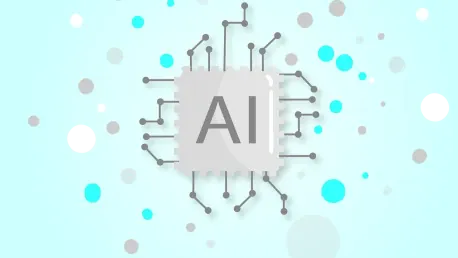The rapid advancement of artificial intelligence (AI) capabilities has outpaced existing evaluation methods, creating significant challenges for major technology companies such as OpenAI, Microsoft, and Meta Platforms Inc. In response to this growing gap, these firms are developing internal benchmarks to better assess their AI models’ abilities. However, this move has sparked industry-wide concerns regarding the need for standardized public evaluations, making it difficult for businesses, consumers, and other stakeholders to accurately measure AI progress and reliability. As AI continues to evolve, the establishment of robust, transparent, and universal testing standards has become a focal point for both innovation and ethical considerations.
Despite their efforts to keep pace with AI advancements, traditional public benchmarks like Hellaswag and MMLU have fallen short in evaluating the sophisticated reasoning capabilities of the latest AI models. These tests, predominantly based on multiple-choice questions, are now seen as inadequate for capturing the full potential of new AI advancements. Industry experts, including Ahmad Al-Dahle of Meta, acknowledge the insufficiency of these benchmarks in accurately reflecting the reasoning and problem-solving abilities of current AI systems. This has prompted companies like OpenAI to advocate for the development of more complex, real-world reflective tests that can better gauge the advanced capabilities of their AI models.
Industry Response and Internal Benchmarks
In light of the inadequacies of traditional benchmarks, major tech companies have turned to developing proprietary internal benchmarks to evaluate their AI systems comprehensively. Mark Chen of OpenAI has highlighted the limitations of human-designed tests, which often fail to capture the nuanced and sophisticated potential of advanced AI models. By creating customized evaluation methods, these companies aim to simulate real-world challenges more accurately, providing a better understanding of their AI’s practical applications and limitations. However, this shift towards private benchmarks has ignited a debate over the transparency of AI testing.
Dan Hendrycks, executive director of the Center for AI Safety, underscores the importance of publicly available benchmarks, which allow businesses, researchers, and the general public to grasp AI progress better. The lack of transparency associated with private benchmarks risks obscuring the true capabilities and limitations of AI models, hindering efforts to automate complex tasks accurately. As a result, the industry faces a dilemma: balancing proprietary advancements with the need for transparent and standardized public evaluations.
External Contributions and New Evaluation Methods
In addition to efforts by major tech companies, external organizations are also contributing to the development of new AI evaluation methods. Scale AI, in collaboration with Hendrycks, has launched “Humanity’s Last Exam,” a project that crowdsources complex questions from experts across various fields. This initiative aims to create a diverse and challenging set of tests that better reflect the real-world applications of AI technology. Furthermore, FrontierMath, designed by expert mathematicians, presents AI models with intricate and highly demanding questions, achieving a completion rate of less than 2% on its toughest questions.
These external contributions highlight the consensus within the industry on the urgency to develop more accurate and comprehensive testing methodologies. There is a growing recognition that advanced AI systems require evaluation frameworks that go beyond traditional benchmarks, capturing the intricacies of real-world challenges. However, the integration of these new methods must be accompanied by a commitment to transparency, ensuring that progress is both measurable and comprehensible to all stakeholders.
Balancing Innovation and Transparency
The rapid growth of artificial intelligence capabilities has surpassed current evaluation methods, posing significant challenges for tech giants like OpenAI, Microsoft, and Meta Platforms Inc. To address this issue, these companies are creating internal benchmarks to better evaluate their AI models. However, this approach has sparked concerns across the industry about the need for standardized public assessments. Without them, businesses, consumers, and other stakeholders struggle to measure AI progress and reliability accurately. As AI continues to evolve, establishing robust, transparent, and universal testing standards has become crucial for both innovation and ethical considerations.
Traditional public benchmarks, such as Hellaswag and MMLU, have not kept up with evaluating the sophisticated reasoning abilities of the latest AI models. These tests, mostly based on multiple-choice questions, are now seen as insufficient in capturing the full potential of new AI advancements. Industry experts, like Ahmad Al-Dahle from Meta, recognize the inadequacy of these benchmarks in reflecting the reasoning and problem-solving skills of modern AI systems. This has led companies like OpenAI to push for the development of more complex, real-world tests to better gauge their AI models’ advanced capabilities.









